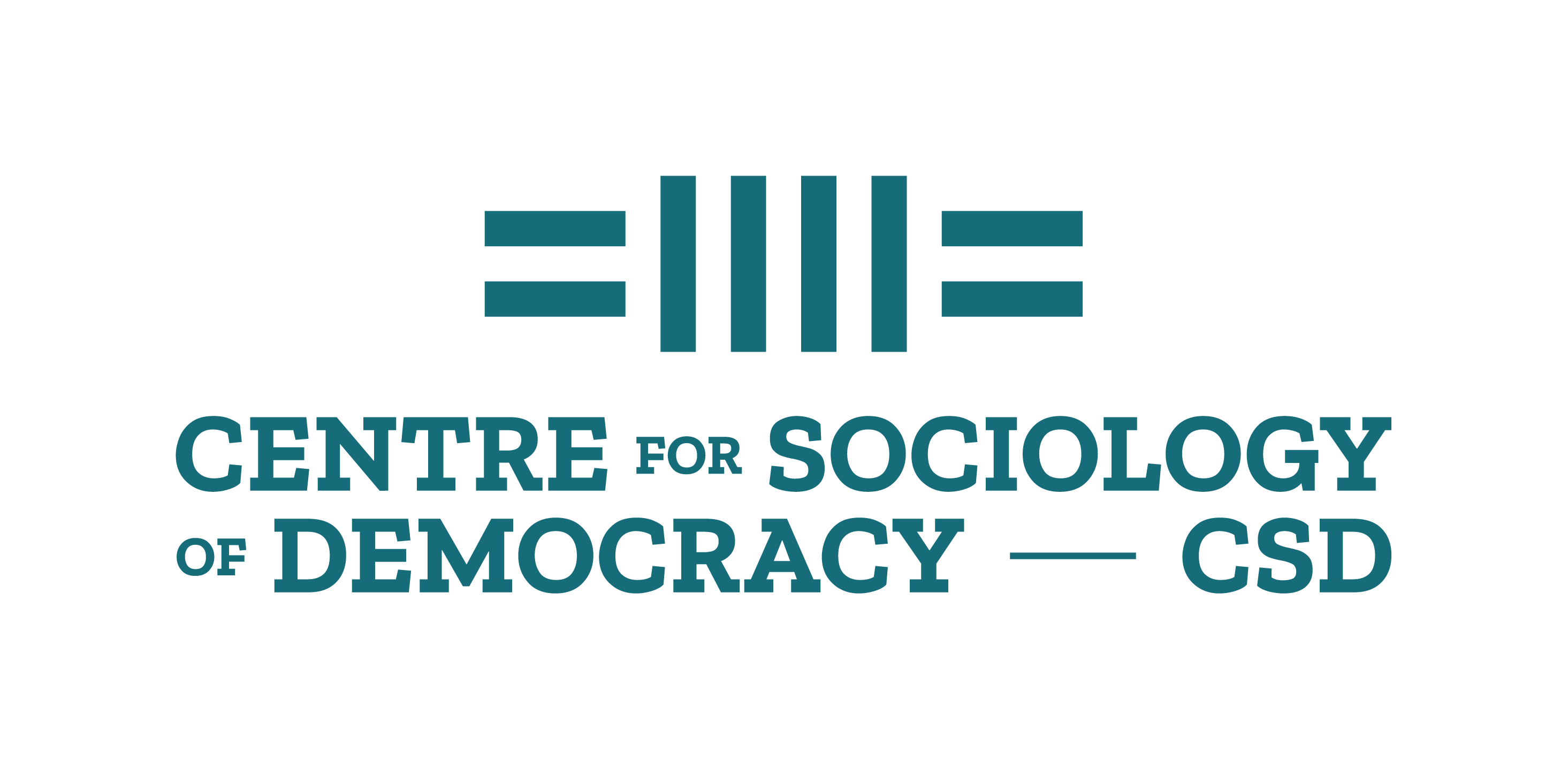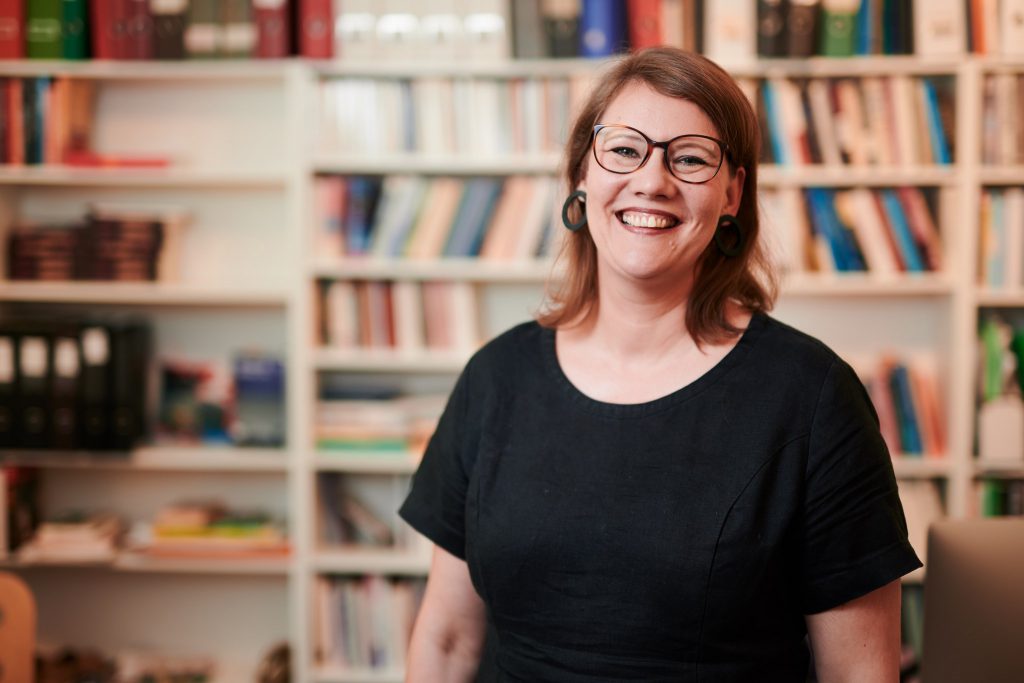
The Centre for Sociology of Democracy studies democracy in modern societies. Our projects deal with democracy from different perspectives and with different methods.
»
Recent News & Blog Posts
In their chapter for the Concise Encyclopedia of Applied Ethics in the Social Sciences, Taina Meriluoto and Eeva Luhtakallio discuss the specificities of ethical questions when studying a political topic, in particular social movements and activists in stigmatized or risky positions.
By discussing current youth’s democratic practices and introducing the concept of visual politicization, Eeva Luhtakallio, Taina Meriluoto and Carla Malafaia argue for a reconsideration of what we understand as political action and propose new methodological tools for analyzing it.
In their article, Carla Malafaia, Jenni Kettunen and Eeva Luhtakallio explore the function of bodies as tools of visibility in ritualised online-offline performances. By analysing performative protests, the authors shed light on the importance of paying attention to non-verbal levels of political action and argumentation.
In this editorial Carla Malafaia, Maria Fernandes-Jesus and Eeva Luhtakallio discuss the new diverse ways young generations have become mobilized to tackle the climate crisis and picture ways towards a common world and practices.
The Pepe the Frog Image-Meme in Hong Kong: Visual Recurrences and Gender Fluidity on the LIHKG Forum
Using a combination of a computational big data analysis and a qualitative analysis, Katrien Jakobs, Degel Cheung, Vasileios Maltezos and Cecilia Wong examine how activists used the Pepe the Frog image-meme to make statements about Hong Kong politics, gender and democracy during the 2019 Anti-Extradition Bill and Law Movement.
In her article, Carla Malafaia studies how youths manage their activism and argues that activists construct margins of resistance in their political practices by incorporating processes that interrupt adult structures while reframing educational imagination.
In their article, by augmenting Mouffe’s agonistic pluralism with Thévenot’s pragmatic sociology, Veikko Eranti and Taina Meriluoto develop both an analytical framework for a more nuanced study of urban politics as sites of democracy and a detailed conceptualization of pluralism in democracy.
In their article, Eeva Luhtakallio and Taina Meriluoto argue that a fame-based logic has become dominant in the strategies of actors in many different situations concerning political action in public. By recognizing the fame-based values informing public action with a pragmatist approach, they argue that a wider variety of action can be recognized as public action and the normative foundations that inform people’s action in public can be interrogated.
In their article, Luhtakallio, Ylä-Anttila and Lounela compare the efforts of civil society organizations to influence climate change policymaking in three countries with very different traditions of democratic decision making.
In her article, Taina Meriluoto conceptualizes selfies as reflexive practices of self-coordination, and develops an analytical framework adapted from the literature of sociology of engagements for their analysis.
Falling Walls Science Breakthrough of the Year 2022 award to Eeva Luhtakallio and ImagiDem
What are the next walls to fall in science and society? Led by this question, the brightest minds from the international scientific community submitted their groundbreaking projects for the prestigious Falling Walls Science Breakthrough of the Year 2022.

Eeva Luhtakallio, Professor of Sociology at the University of Helsinki, was awarded one of the Falling Walls Global Call Winners 2022 in the Social Science and humanities category. Luhtakallio leads the Centre for Sociology of Democracy as well as the ERC funded project ”Imagi(ni)ng Democracy: Young Europeans becoming citizens by visual participation”. The Falling Walls Science Breakthrough of the Year 2022 in Social Sciences and Humanities was selected by a distinguished Jury chaired by Björn Wittrock.
ImagiDem – Imagi(ni)ng Democracy: European youth becoming citizens by visual participation
The public sphere today is increasingly dominated by visual content. The visual dimension of political participation is the key to understanding current youth’s political action: on social media and offline in their action groups they build arguments, mobilize, and politicize through and by repertoires of visual participation. ImagiDem analyzes and conceptualizes visual participation of young Europeans to formulate an updated understanding of the public sphere and democratic practices. ImagiDem uses a radical methodological strategy: it merges ethnography with AI and supervised learning based computational tools, using the outcome to compare multiple field sites and visual big data from Finland, France, Germany and Portugal. The data is produced and processed through unique cocreation and cooperative analysis by researchers from the respective fields. ImagiDem’s theoretical ambition lies in introducing visual participation to pragmatic sociological understanding of building the common.
Read more:
“Discover this year’s Falling Walls Winners”: https://falling-walls.com/science-summit/science-summit-winners-2022/









